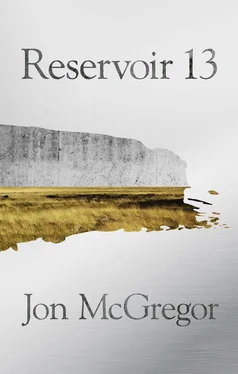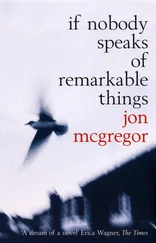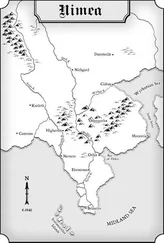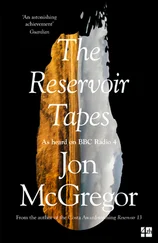At dawn on Midsummer’s Day the sun fell into line with the two pairs of fallen stones at either end of the Stone Sisters. The drumming could be heard from down in the village. The bracken was up but was browning already. Ashleigh Wright was found to have been missing days at school. There was a phone call to Susanna and a meeting with the head of year, Ms Bowman. Ashleigh was at the meeting but she couldn’t be brought into the conversation. She slumped low in the chair and her hair hung over her face and she wouldn’t be drawn. Was there bullying. Was she finding the lessons too difficult, or too easy. Where was she going when she wasn’t in school. Was she meeting anyone. If there was a problem they wanted to work with her to resolve it. But she couldn’t go on like this. She kept shrinking into her chair, and when Susanna put a hand to her shoulder she jerked away. It was difficult to ask questions into that sullen vacuum without becoming frustrated. Susanna and Ms Bowman fell silent. It was a small room and warm and there was condensation on the window. Outside there were shouts as the younger year groups took their morning break. There was a stack of books on Ms Bowman’s desk that needed marking by the end of the day and she tried to keep her eyes from it. Susanna’s hand was still smarting from the way Ashleigh had pulled back. This was new. Or not new, in fact. It was the same way she’d retreated when they were with the children’s father. Susanna hadn’t seen it for a long time. There had been a kind of strength in it then, she knew, the kind of strength a child shouldn’t need. But she wondered what was happening now to make her retreat in that same way. Ms Bowman was watching the two of them. She knew there was a history. There’d been little concern with the brother but this one seemed more troubled. Probably they would need to talk separately. There might be a referral, if the mother would accept that. But now time was short and the poor girl just wanted leaving alone. She smiled at Susanna and gestured that she would call her later. Susanna stood to leave and Ashleigh was already heading through the door. In the corridor Ashleigh walked away without saying anything and Susanna watched her go. Her spine was all twisted and her shoulders hunched and her feet were dragging as she walked. Her posture was doing her no favours but she wouldn’t want to hear that. Susanna was feeling pretty tense around the clavicles herself. She’d go for a run when she got home. All those things that had happened. When she thought they were passed they kept coming back. She lifted her head and dropped her shoulders and tried to feel herself connected to the earth through the balls of her feet. Rohan had finished university and come home with no idea what to do next. He was helping her in the shop but she couldn’t pay him. She’d been running a loss for months and could barely afford to restock. The landlord was losing patience. James Broad came back from university and worked in Hunter’s timber yard for a time. He refused to go to his graduation. A certificate arrived by registered post, and he showed his mother, the two of them standing in the kitchen in their dressing gowns, James with his mouth full of toast and his mother having to whip the certificate away so it didn’t get covered in jam. Later he met the others for a drink in town, and although it was meant as a celebration they weren’t really in the mood. They sat out in the beer garden by the river where they’d sat three years before, and soon ran out of things to say. Sophie was the only one who had a job lined up, and she’d failed her course altogether. When Rohan suggested they take the shortcut across the river to the car park Sophie gave him a withering look. In the morning Les Thompson and his men were out early with the mowers. They went straight from the milking to the machinery shed and got things started. The morning had been clear and still, the mist lifting from the fields in waves and burning off before the cows were even turned out. Jones’s trial came to court and he was sentenced to eighteen months. There was a report in the paper that no one wanted to read. His sister was still staying elsewhere and his house stood empty. At night the bats flew low over the water and down the lane past the orchard, feeding on insects no one knew had existed before they were carried away. In the evening a police van was seen at Fletcher’s orchard. Ray and Flint were arrested.
The long days of July were hot. The heather seethed with insect life. On Sunday in the evening Sally and Brian Fletcher ate a meal together. Ordinarily there would be conversation but tonight they were silent. Through the window the caravan was pale against the dusk and the orchard was closing in. The dinner was mostly eaten before Brian spoke. You can’t say I haven’t been patient, he started. Sally looked at him, pushing the last of the mashed potato on to her fork. There was nothing she could say. Even after that last time, Brian went on, I welcomed him back. The boy’s got troubles. We know that. We thought this would help; a bit of stability. But if we could persuade Ray to keep away, Sally said. Ray’s always been the problem. There’s a hold he has over Phil. I don’t think you could persuade that man to go anywhere he didn’t want to go, Brian said. Not without a pair of handcuffs. But if we see what happens, with the charges? Ray will have been the instigator. Maybe Phil will just get a caution? Oh, come on, Sally. They were both in the house. They both went into her house and stole from her. It’s joint enterprise. It’s bloody home invasion. This won’t be a caution. She nodded. She knew he was right. She loved Brian dearly and she knew he was right. She knew how much he’d sacrificed to go ahead and marry her, but there were still times when he sounded as though he was the lord of the manor. They did the dishes and settled down to watch whatever was on television. It was something about a murder. The second clutches of goldcrest eggs were hatching in the conifer plantation up at the Hunter place. When the school holidays started the widower’s ex-wife brought one of his children to stay: the youngest, a girl of around thirteen. No one had managed to drop the habit of calling him the widower. The girl spent more time in the garden than when she’d been there with her siblings the year before. She was especially good with the hens, it was noticed, and took longer than needed putting them away at night. Some evenings she sat with her father on a new bench in the garden, sipping at a mug of hot chocolate, and later he sat alone while the light in an upstairs bedroom shone into the gathering dusk and went out. At the end of the month, after his wife had taken the girl back, the same light was sometimes seen on in the evenings, the curtains drawn, the hens taking longer than usual to settle. At the river the keeper waded into the water and cut away at the weeds.
The August nights were cold and in the mornings the first dewy hints of autumn rose from the ground. The swallows were starting to gather along the wires, the first to feel the cold, turning their heads south and waiting for whatever would pass as a sign. In the woods and along the shaded riverbank the ragged robin was in flower. The air was dry and the sounds of the cricket match carried right through the village, the knock and the chatter and the cheers seeming to grow louder each time. By the end of the afternoon word went round that the match was not being lost. More people turned up to watch. The exact score was a matter of confusion, but when Cardwell’s last wicket was taken, bowled clean by James Broad with a shout that volleyed right across the river and sent the pigeons scattering from the end of the field, there was a general understanding that the game had been won for the first time in memory. In the shelter of one of the cloughs coming down off the moor a well-made den was discovered, birch and larch branches propped up against each other and the whole thing roofed with bracken until the light barely shone through. It wasn’t known who had built the den or what it had been used for, but the ranger took it down all the same. He found magazines. At the office when he mentioned this they wanted to know what sort of magazines. Let’s say specialist-type ones, he said. You mean like gun magazines, fishing? No. I think you know what I’m talking about. Adult magazines. Not comics then; we’re not talking about Beano and Dandy ? No. Special-interest adult magazines. Oh, like tit-mags you mean? Well. Like I say. These were particularly specialist. In what way, Graham? His colleagues could be very obtuse, sometimes. He was aware that they did it on purpose. The best response seemed to be a patience in excess of that which they may have expected. But he had no wish to take this conversation any further. Did you bring any back with you, Graham? For evidence? Can we see them, Graham? Are they in your desk? No, he said. They’ll be in the filing cabinet. Have a look in the filing cabinet. Under S for specialist? A for adult? B for bondage? I’m going to conclude this conversation now, folks. Graham pretended to tip his hat, and left the office. He had better things to do. He could hear his colleagues laughing as he closed the office door. Let them waste their time looking through the filing cabinet. On the allotments in the evenings there were queues for the tap and those with water butts looked on and said nothing. The water skidded across the hard ground and didn’t always soak down to the roots. There was a sense of the season beginning to turn; nothing wilting yet but a softening in much of the growth, the greens less green and the seed-heads starting to fall. The watering went on after the long shadows had stretched down to the road and been overtaken by the greater shadow of the hill. On a fence-post by the road a buzzard tensed and sprang into flight, settling claws-first on a young rabbit and carrying it away. At the school the boilerhouse was demolished.
Читать дальше
Конец ознакомительного отрывка
Купить книгу












